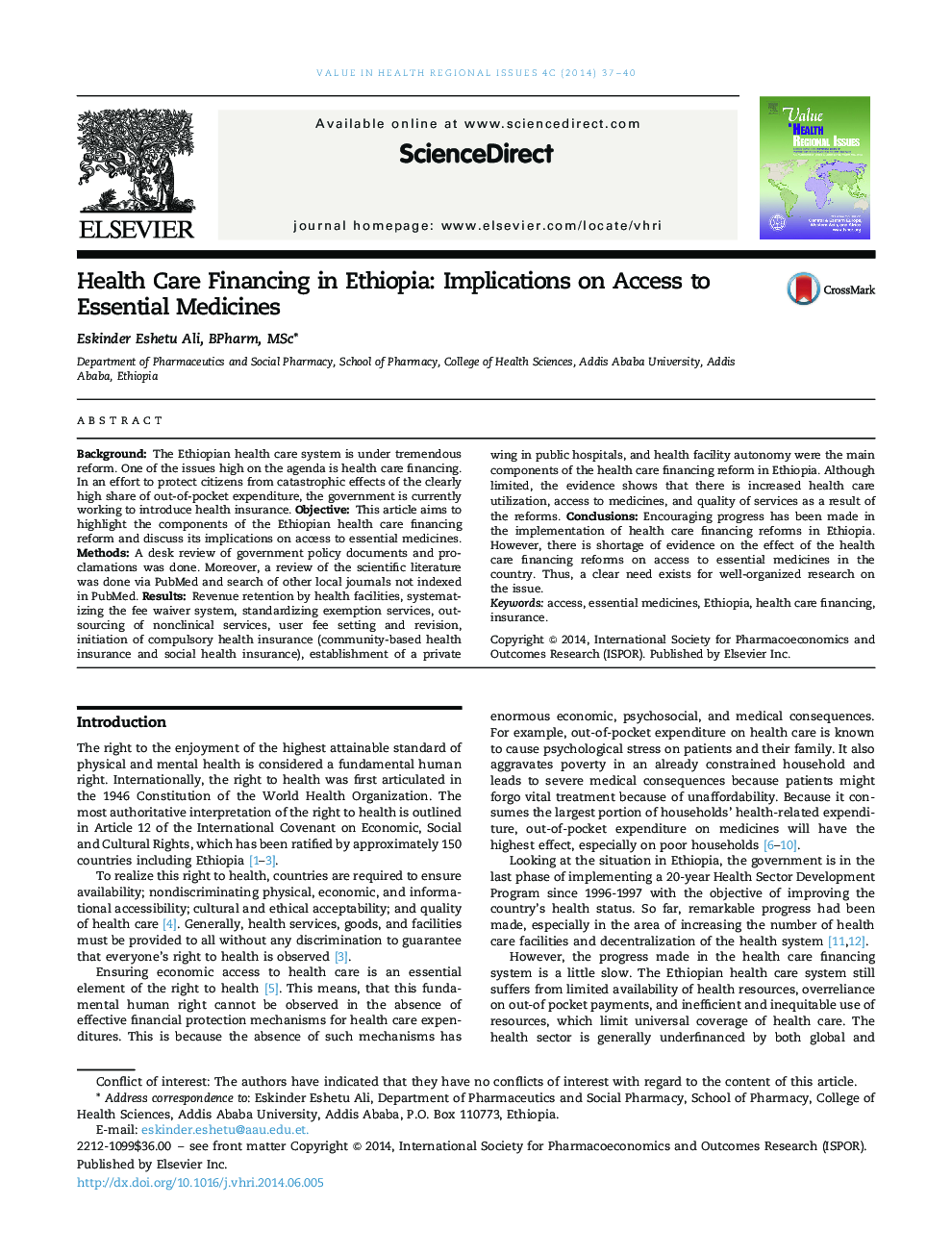| Article ID | Journal | Published Year | Pages | File Type |
|---|---|---|---|---|
| 990877 | Value in Health Regional Issues | 2014 | 4 Pages |
BackgroundThe Ethiopian health care system is under tremendous reform. One of the issues high on the agenda is health care financing. In an effort to protect citizens from catastrophic effects of the clearly high share of out-of-pocket expenditure, the government is currently working to introduce health insurance.ObjectiveThis article aims to highlight the components of the Ethiopian health care financing reform and discuss its implications on access to essential medicines.MethodsA desk review of government policy documents and proclamations was done. Moreover, a review of the scientific literature was done via PubMed and search of other local journals not indexed in PubMed.ResultsRevenue retention by health facilities, systematizing the fee waiver system, standardizing exemption services, outsourcing of nonclinical services, user fee setting and revision, initiation of compulsory health insurance (community-based health insurance and social health insurance), establishment of a private wing in public hospitals, and health facility autonomy were the main components of the health care financing reform in Ethiopia. Although limited, the evidence shows that there is increased health care utilization, access to medicines, and quality of services as a result of the reforms.ConclusionsEncouraging progress has been made in the implementation of health care financing reforms in Ethiopia. However, there is shortage of evidence on the effect of the health care financing reforms on access to essential medicines in the country. Thus, a clear need exists for well-organized research on the issue.
